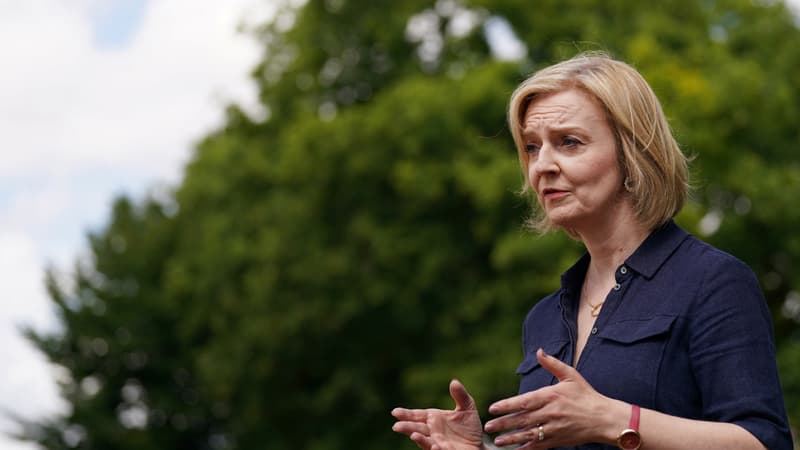“If taxes are brought to the same level as in France, it will discourage investors and in the end it will mean fewer jobs. […] and fewer opportunities for our country.
Will France be the scarecrow for the new UK Prime Minister? A few days after citing our country on British television As a counterexample not to follow in tax matters, Liz Truss again cited France this time in Parliament to justify not raising taxes.
The new tenant of 10 Downing Street who likes to present herself as the new Margaret Thatcher has made tax cuts the cornerstone of her economic policy. Her objective: to generate a growth shock by annulling the tax increases and in particular the contribution decided by her predecessor Boris Johnson.
A strategy whose validity is debated on the other side of the Channel but it is above all the reference to France that annoys certain comments. This is the case of the Franco-British journalist Alex Taylor.
France taxes more
Is Liz Truss lying when she says that France is scaring away investors because of its deterrent taxation?
France is, it is true, one of the countries in the world whose weight of mandatory taxes is the highest in the world. In 2020, according to Insee and Eurostat, the country ranked second in Europe after Denmark with a tax rate of 47.5% of GDP. That year, the European average was 41.3% and that of the United Kingdom 33% according to the OECD.
Therefore, the general tax burden is much lower on the other side of the Canal. But this data aggregates all levies and not just those related to business or investment.
It would be better to compare corporate income tax (IS) rates, i.e. taxation on profits, which are more likely to influence a company’s choice of location. In France, the normal CIT rate was modified by the 2018 finance law and was reduced from 33.3% in 2017 to 25% in 2022. A decision desired by Emmanuel Macron during his first term to increase the attractiveness of the country. A type to which must be added a social contribution on benefits of 3.3% after deduction.
Therefore, the true corporate tax rate is approximately 27% in France. To this tax on profits we can add those related to turnover (taxes on production) which in 2016 accounted for 2% of GDP but which has since been lowered with the elimination of part and soon all of the CVAE.
More investments in France
In the UK, corporate taxation is, in fact, softer. The corporate tax rate is 19%, that is, 8 points less than in France. The British equivalents of our production taxes represent 1.6% of GDP (2% in France).
Liz Truss is not wrong when she says that taxes are much higher in France than in her country.
Is this taxation therefore a brake on investment, your argument to justify your fiscal policy?
The journalist Alex Taylor assures in his tweet that France has been the European country that attracts the most foreign investment for three years. He thus refers to the annual study of the EY firm absorbed by Business France, which places the country in first place in Europe since 2019 in foreign investment.
The number of establishments has even increased considerably here (+24% in 2021), while it has remained relatively stable in the UK (+2%).
Settlements creating fewer jobs
Wouldn’t taxation, therefore, influence the attractiveness of a country? This may be going a bit too fast. France surpassed Germany in 2018 and then the United Kingdom in 2019 in the EY barometer, while at the same time the taxation of companies and capital (removal of the ISF, flat tax) fell in the country. Although nominal rates are still higher than in our neighbours, the trend is downwards, which foreign investors seem to have taken into account.
Furthermore, the EY barometer is perhaps particularly flattering for France. If indeed the country is the one that hosts the largest number of foreign investments, the sums invested and the jobs created in France are much more modest than in our neighbours.
The average number of jobs created per investment is in fact 38 in France compared to 45 in Germany and 68 in the UK. Therefore, foreign companies create smaller structures in France than in our direct neighbors with lower taxes.*
And these are more often extensions than ex-nihilo creations.
A stumbling block that the new British prime minister apparently wants to avoid.
Source: BFM TV


